Reclaiming Voice
The 1980s was a period of growth, reflection, and commemoration for Black students across the UNI campus. On the other hand, this period focuses on the ever-present issues of inequity that were apparent from the individual, community, and national concerns. Controversies in campus management and leadership policies affected the UNI Educational Opportunity Program (EOP). In 1981, a group of mostly Black students called for the resignation of leadership. The demands of these students brought forth a semester-long investigation. The events of the early 1980s would restructure the administration and development of the UNI EOP programs. The Ethnic Minorities and Cultural Education Center (EMCEC) worked in conjunction with campus departments and organizations to promote efforts in cultural understanding under these new guidelines. The active role of Black students in shaping the EMCEC marked a moment of reclaimed Black agency on campus.
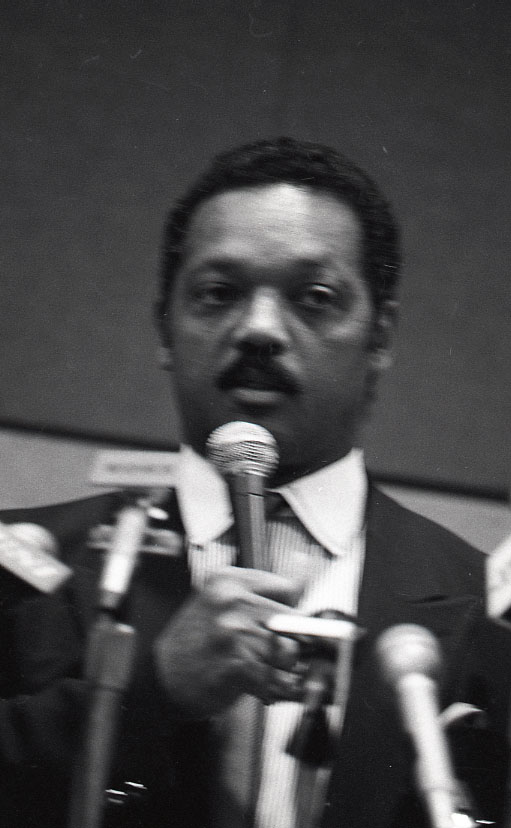
UNI as a Platform for Black Voices
The 1980s was a moment of cultural freedom that led to the flourishing of The 1980s was a moment of cultural freedom that led to the flourishing of Black culture on campus. Many key figures such as Robert Morris and Yolanda King came to speak during Black History month in conjunction with the EMCEC and other campus programs to highlight the issues of importance in Black communities across the United States. Democratic Presidential candidate and now former Senator Jesse Jackson (Pictured on Left)1 through the EOP and brought a new focus on issues with voting rights in marginalized communities. His visit included addressing problems with the Reagan administration economically and socially concerning what issues for marginalized groups have come up from it.
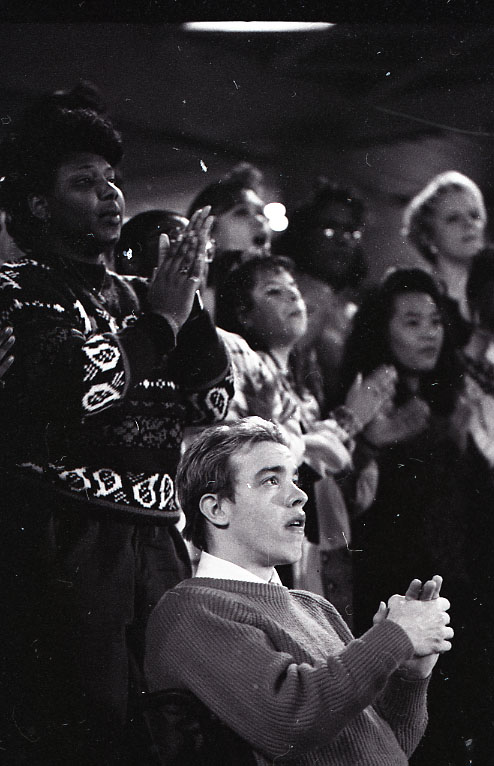
Emphasis on Community
The 1980s saw an increase in cultural representations on campus. Vice President of Student Affairs, Charles Mean, focused Attention on on-campus diversity in faculty and community in the classroom. Mean spoke on decreasing the disconnect between students of color and a predominantly White faculty by increasing the diversity of their instructors. The UNI Gospel (Pictured on Right)2 Choir and Soul Food Dinners contributed to vibrant social life. Local outreach to underprivileged communities took the form of scholarships offered to three students from Waterloo East High through the Financial Assistance to Deserving Scholars (FADS) and the Business Deserving Scholars (BDS) Programs. The turn of the decade emphasized the spirit of celebrating Blackness within the community that would carry a greater focus on on-campus representation into the 1990s.
1980s: A Timeline
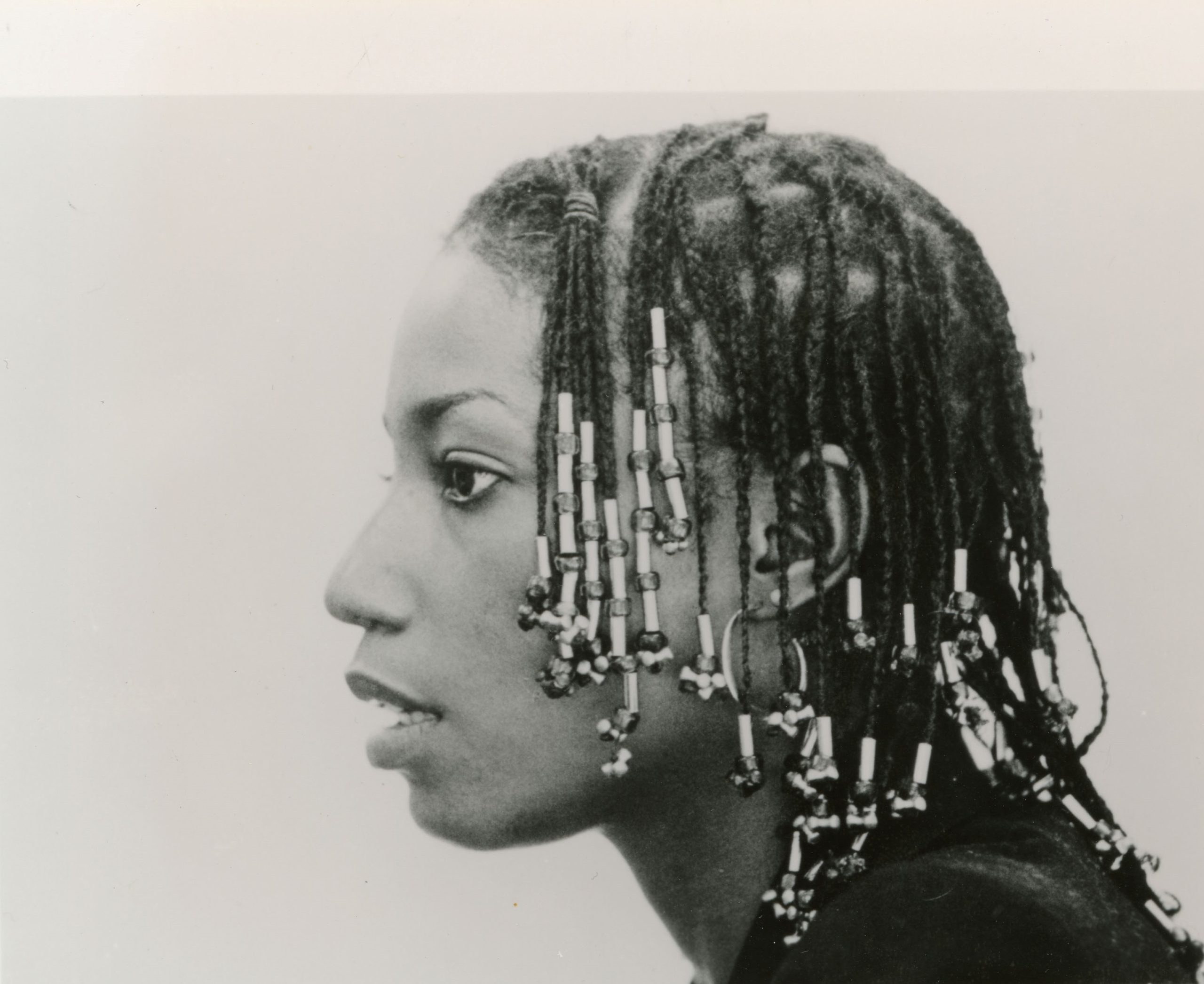
Michelle Wallace at UNI
Michelle Wallace speaks about gender divisions in Black communities and leadership.3
Controversy in UNI Educational Opportunity Program Leadership
A group of 80 mostly Black students sign a petition calling for resignation of leaders Norris Hart and Patricia Edwards. Issues addressed by students included ineffective management, misappropriation of funds, and unprofessional behavior.4
Norris Hart Resigns
Shortly after the official report of the investigation into UNI EOP leadership is published, Hart decides to to resign after the decision to reassign both Hart and Edwards.5
Black People in Politics
Law student Robert Morris, also an executive of the Nebraska Conference, gives a speech entitled “Blacks in Politics” at the UNI Culture House
during Black History Month. His speech focused on what African Americans are facing in public office settings.6
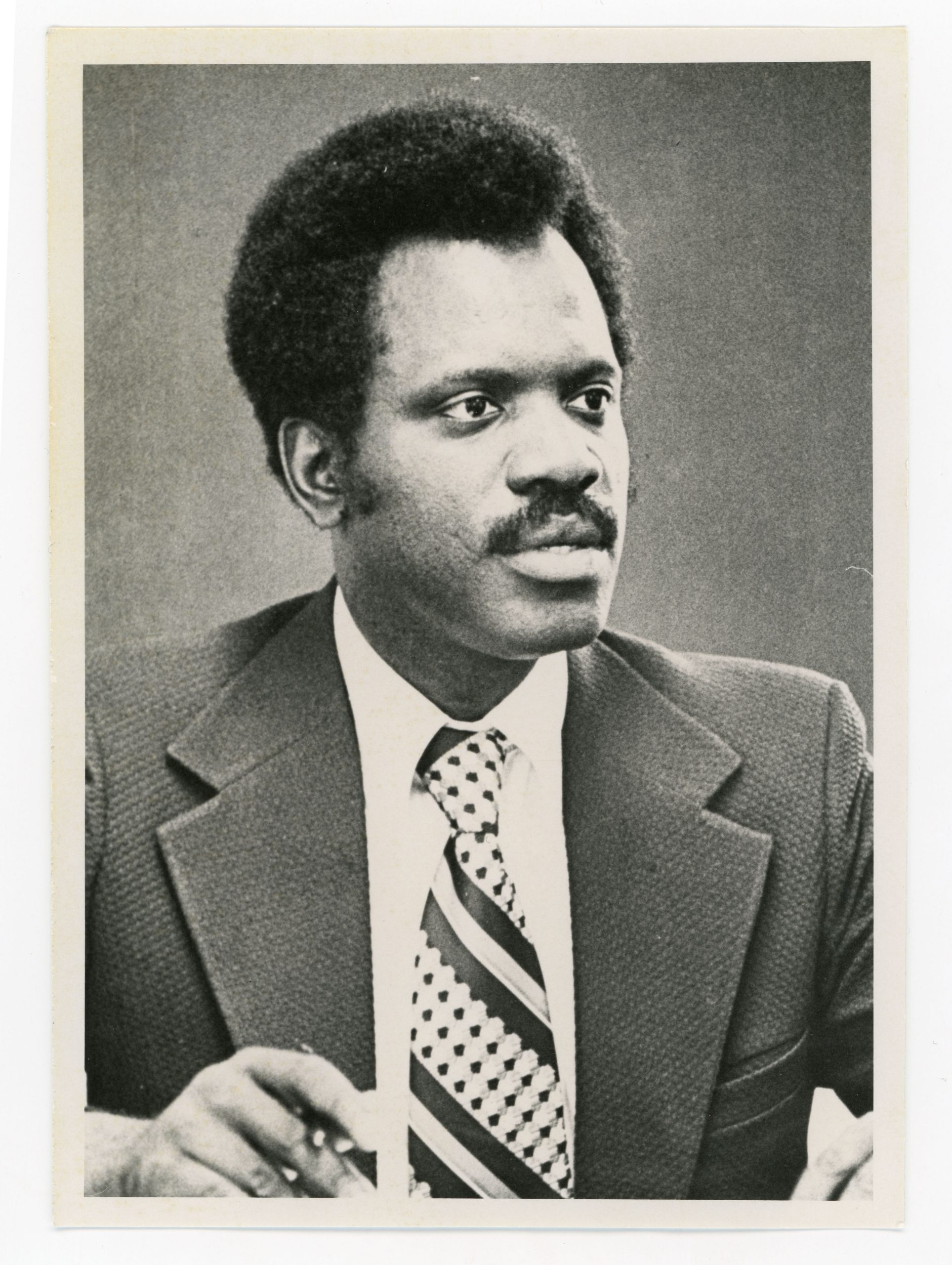
EOP Developer Robert Murphy Talks About Education Trends
Developer of the UNI EOP program Robert Murphy, emphasized the role of Blacks in developing education as well as in educational leadership.7
George Cooper Speaks
As part of Education Week, George Cooper (manager of training development at the Bell System Center in Lisle, IL.) spoke about the importance of education in pursuing happiness for the Black community.8
EOP Introduces New Advising Program
The EOP introduces a new peer advising program that is made for EOP members to give the best advice and cousal for students in their programs. Students that that are a part of the EOP took prority when it came to the first come first served basis due to limited funding.9
Gradutes Give Credit to EOP
Graduate students Gehrig Lavelle and Leotus Swopes give credit to the EOP to allow them to continue their education. LaVell went back to obtain an Criminal Justice Masters while Swopes went back to class for School Administration.10
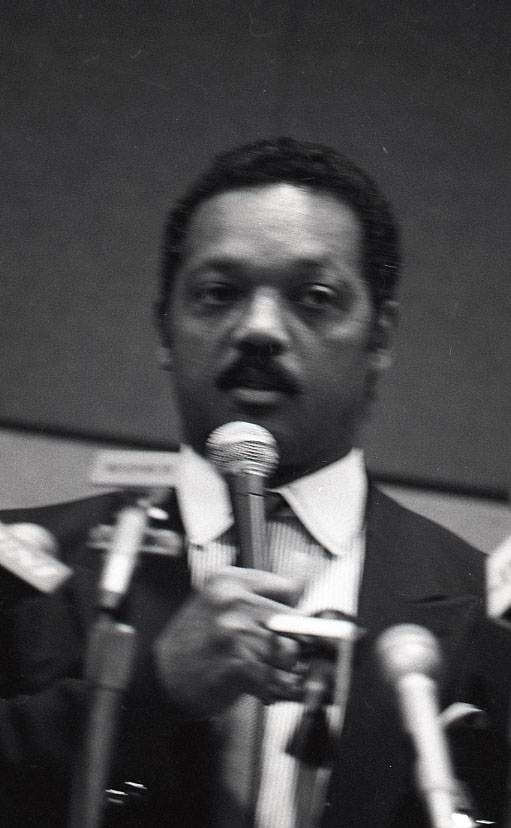
Presidential Canidate Jesse Jackson Speaks at UNI
Democratic Candidate Jesse Jackson speaks on the topics of Reagan polices and minority groups voting and human rights to inform others on his platform while at the same time gaining voters.11
UNI Hosts Second Annual Minority College Fair
Universities across Iowa send representatives to the UNI Second Annual Minority College Fair to inform about college admissions, courses of study, and financial aid.12
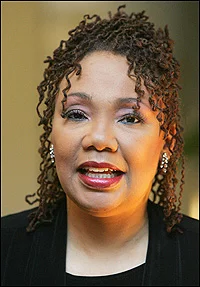
Yolanda King Visits UNI
The oldest daughter of Martin Luther King Jr. visits the University of Northern Iowa during Black History Month to publicly address human rights and her efforts in forwarding them.13
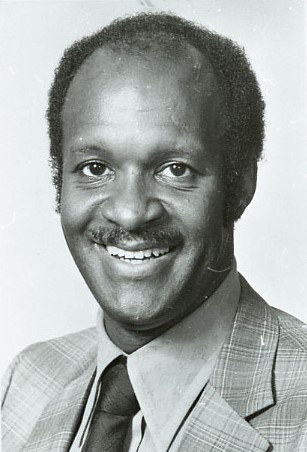
Issues in Equal Opportunity, Instruction.
Assistant Vice President for Academic Affairs Charles Mean speaks out on the importance increasing of minorities in positions of instruction and disconnection with UNI minority students.14
Chris Hawes Reflects
on the EMCEC
As Black History Month draws to a close, the role of the EMCEC is publicly emphasized as a key force in bringing prominent Black figures to UNI every year.15
UNI Financial Assistance to Deserving Scholars Awards (FADS)
Three students from Waterloo East High School participate in a program which allocates moderate scholarships to local students who otherwise may not be able to attend.16
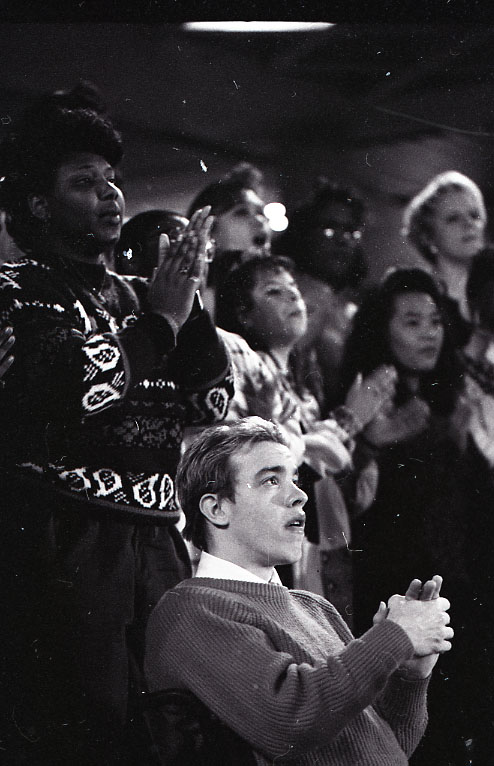
Black History Month Conclusions
The UNI Gospel Choir performs in the auditorium on February 25th, followed by a Soul Food dinner on the 26th.17
Sources
- Jesse Jackson Photo. Photograph. Cedar Falls, IA, 1984. University of Northern Iowa Special Collections. Individual photographer information is unavailable.
- Gospel Choir Photo. Photograph. Cedar Falls, IA, 1988. University of Northern Iowa Special Collections. Individual photographer information is unavailable.
- “Controversial Black Author Highlights Black History Week.” Northern Iowan. February 19, 1980.
- Armstrong, Kathy. “Students Demand Firing of EOP Directors.” Northern Iowan. November 17, 1981.
- Riedesel, Miles. ”Former EOP Director Hart to Leave UNI.” Northern Iowan. August 27, 1982.
- Schlimmer, Paula. “Morris Calls for Involvement.” Northern Iowan. February 15, 1983.
- Janssen, Steve. “Murphy: Education Struggle.” Northern Iowan. February 22, 1983.; Murphy Photo. Photograph. Cedar Falls, IA. 1983 University of Northern Iowa. Individual photographer information is unavailable.
- “Cooper, Murphy to Speak as a Part of “Education Week.” Northern Iowan. February 15, 1983.
- “Graduates credit EOP for Career Aid” Northern Iowan. January 29th, 1984.
- “Peer Advising Program Introduced” Northern Iowan. September 9th, 1984.
- “Jackson: Need to Change Directions.” Northern Iowan. February 14, 1984
- “UNI Sponsors Second Annual Minority College Fair.” Public Relations News Release. September 27, 1985.
- “Yolanda King to Speak on UNI Campus Thursday (Feb. 20).” Cedar Falls, IA: University of Northern Iowa, 1986. UNI Black History Month.; Lang, Oliver. Yolanda King. Photograph. Yolanda King, Daughter of Civil Rights Leader, Dies. National Public Radio, May 16, 2007. AFP.
- Bingham, Elizabeth. “Minority Faculty Needed to Attract More Minority Students, Means Says.” Northern Iowan. February 27, 1987.
- Hawes, Chris. “EMCEC Strives to Eliminate Cultural Prejudices on Campus.” Northern Iowa. March 1, 1988.
- “Three East High Graduates Among Participants in Business Deserving Scholars Program.” Public Relations News Release. November 3, 1988.
- “Black History Month Activities Are Continuing at the University of Northern Iowa.” Public Relations News Release. February 20, 1989.